I’m lucky enough to live in the city of Bristol. It is regularly declared to be one of the best places to live in the UK and is a flourishing, tolerant and multicultural success story, a byword for social diversity and vibrant community politics, a city filled with open minded and creative inhabitants who know how to party. Or so the story goes, often neglecting to mention the fact that not only are too many residents of Bristol not a part of this narrative at all, neither are they likely to join it any time soon, with high and growing levels of inequality between different parts of the city.
In some ways Bristol reminds me of Beszel and Ul Qoma in China Mieville’s book The City and The City; twin cities that occupy the same geographical space but in which the citizens of each side largely ‘unsee’ the denizens, buildings, and events taking place in the other. Hopefully the election of the labour candidate Marvin Rees as Mayor of Bristol represents a positive step towards the reconciliation of these two very different Bristol’s. Marvin, a mixed race native of the city who spent part of his child-hood growing up in the largely white working class Long Cross estate and whose campaign has focussed on bringing in the many inhabitants of the city who feel entirely excluded from the ‘party’, certainly appears better placed in this regard in comparison to previous Mayor George Ferguson, a former member of the elitist Society of Merchant Venturers – an organisation with a historical involvement in the Slave Trade, and a man who has not only driven the regeneration / gentrification of several areas of Bristol, but who also in many ways personifies the gentrification of progressive politics itself.
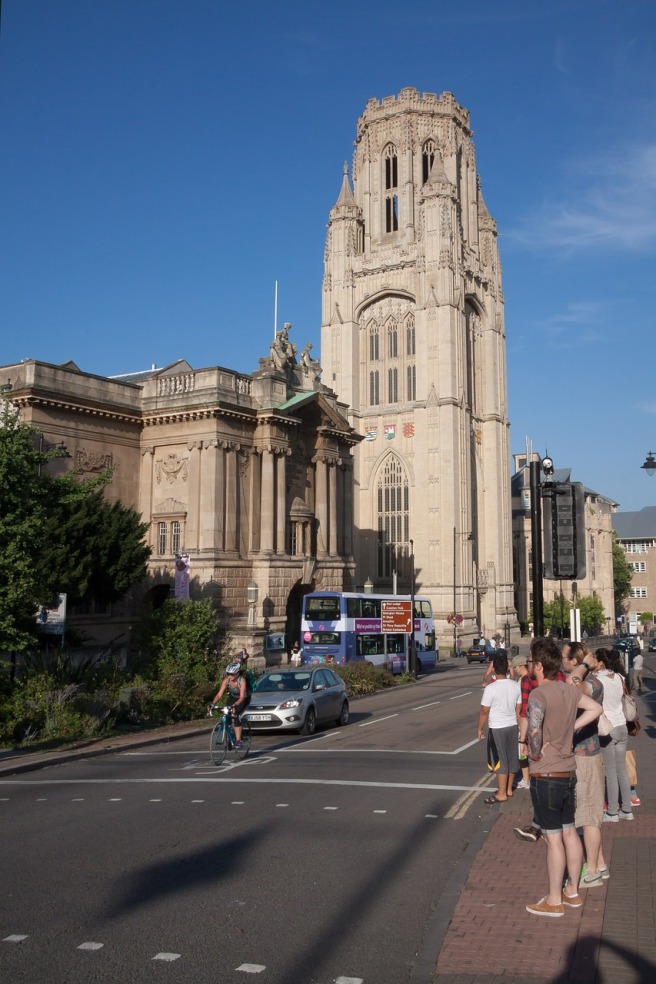
I started writing this post in the run up to the EU referendum in the UK. I was going to try and avoid writing about Brexit because there will be no shortage of able commentators dissecting the result. I apologise for adding yet another voice to the mix but I had to join in when I realised that in many ways the Brexit vote represents – on a national scale – exactly what I am seeking to describe about Bristol. Once one recovers from the initial disbelief of this epic omnishambles, one of the next things that an analysis of the result reveals is quite how divided on this issue the country is. The successful leave campaign garnered 52% of the vote, only just squeaking past remain with 48%. This is a tiny margin of victory, one that professional arsehole Nigel Farage himself argued would constitute ‘unfinished business‘ (albeit if the result was in the other direction). The narrowness of the winning margin is especially significant when you consider that the decision to leave the EU is a probably irreversible – and in my opinion, jaw-droppingly terrible – decision, an act of national self harm that is likely have a negative impact on many generations to come.
If you look at the results a little more closely it quickly becomes apparent that there is a clear divide between those areas (London and most of the major cities, Northern Ireland and Scotland, and parts of the south) which voted strongly in favour of remain, and the rest of the country which voted equally as strongly to leave. Look a little closer still and it becomes apparent that there was a strong correlation between age, level of income, educational status and voting intention. This is a country deeply divided between young and old and rich and poor.
The referendum offered the economically disenfranchised millions across the country an opportunity to be heard. The gutter press, and ruthlessly immoral politicians eager to seize a potential opportunity for career development, have been only too happy to stir up xenophobia and anti-intellectualism to a fever pitch that was only temporarily quietened by the tragic murder of MP Jo Cox by a man shouting ‘Britain First’. The brexit vote represents a long, loud, ‘fuck you’; To Europe, Politicians, Intellectuals, Immigrants and liberal cosmopolitan Britain. Given the likely long-term outcomes, and the fact that many of the most pro-Brexit regions are also those most dependent on the EU for trade (and aid), ultimately – and perhaps most tragically of all – the longest, loudest and most hard-hitting ‘fuck you’ will be delivered to the very same economically disadvantaged people who voted for it in the first place.
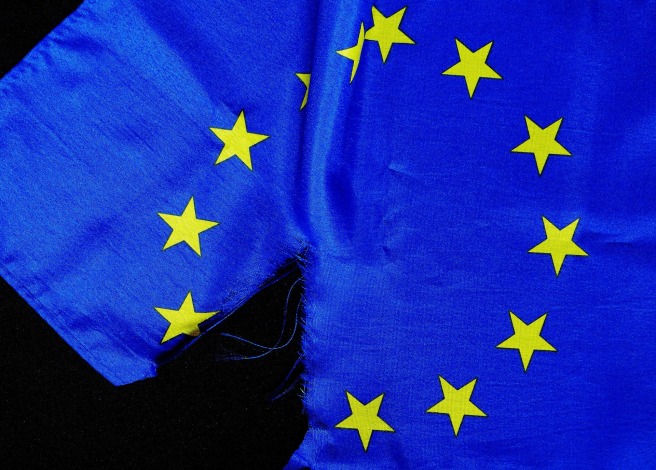
This is what can happen at a national scale when too many people feel left out and powerless for too long. It is ironic that David Cameron, the man most responsible for inflicting Austerity on Britain, has fallen on his sword (figuratively I might add – sorry to disappoint) as a direct response to the votes of millions of those very same victims of austerity; people who have so little / have already lost so much, that they were willing to roll the dice on a leave vote. People who are willing to risk bloodying their own noses if a few political snouts [having name-dropped the current, soon to be former, prime-minister, I felt it essential to make at least one pig reference] could be bloodied also. People who were willing to vote leave in a desperate hope that the great unknown might somehow be an improvement on the status quo, despite the weight of evidence and expert opinion suggesting the opposite outcome is far more likely.
I’m lucky enough to live in the city of Bristol… and to be one of those people who has been invited to the ‘party’, and indeed – as I discuss in this post, who has had the privilege of wasting spending a not insignificant part of my twenties doing exactly that. I’ve also spent a rather more significant – and productive – part of this time working jobs, in drug and mental health services, in prison and with community groups, in which the gulf between my existence and that of some of the other residents of the city have been brought to my attention in the clearest ways imaginable.
What has any of this got to do with spirituality? To begin with, this divided city with its gentrification, its homelessness, its artisan bakeries and methadone clinics, boutique theatres and massage parlours, serves simply as the setting in which my encounters with ‘the spiritually inclined’ must be considered. It is important for things to be put into a broader context if you really want to understand them. I will argue that this process of contextualisation is particularly important in this case because it runs directly against the somewhat self-centred and inward looking nature of much of what we might call ‘western spirituality.’
Before I go any further its probably worth considering what spirituality even means. If you are anything like me then the concept will simultaneously represents everything that is banal, vague and frankly just utter bullshit with regards to new age ‘religiosity’, but might also signify in some way a potentially transcendent phenomena with the power to enhance life by allowing access to a sense of the divine, of something bigger and greater than yourself. You might even see spirituality as representing a sort of detoxified distillation of some of those more positive aspects of traditional religion.
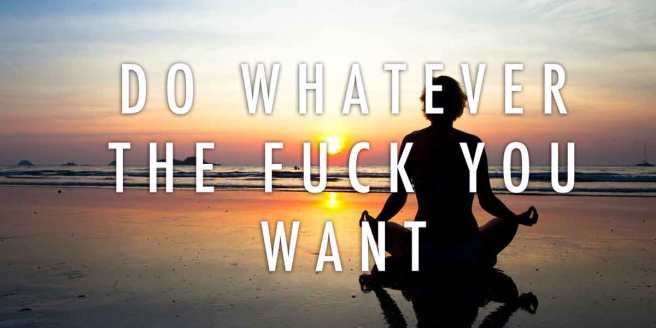
I’ve been wanting to write a post that relates in some way to spirituality ever since I shared the following article a number of months ago. This article, whilst perhaps not the best thing ever written, provides a valuable critique of mindfulness by drawing attention to some of the negative effects experienced by people practising the technique. Mindfulness is a stripped down, secularised meditation technique that describes itself as a translation of Eastern Spiritual meditative practises. Mindfulness has gone mainstream in the west, making its way into schools, corporations, prisons and government agencies as a one size fits all solution for creating a happier workforce, increasing productivity and lowering the number of sick days taken. It is backed up by scientific studies that report the numerous health benefits of the practise and how it can effect neurological changes in the brain.
Although the article has something of a provocative headline I was taken aback by the strength of negative feeling that the post aroused. Many of the responses I received were from people who used meditation or mindfulness regularly and whose experiences of these techniques – like my own experiences with meditation – have been almost entirely positive. In my previous post I briefly touched upon the way in which the internet encourages us to graze, regurgitate, rebuke or rebut information, often without having ever engaged our own critical reasoning properly. In this case it quickly became clear that a number of people were simply responding to the title of the article without even having taken the time to read it properly. Some of them, however, clearly had. Responses ranged from a questioning of the authors mental health and the suggestion that she was grossly exaggerating her own experiences, to the relishing of the fact that the article includes the story of a woman who experienced a mental breakdown when she meditated (serves her right for thinking she had already dealt with her issues, what an idiot). Needless to say I was pretty horrified by these responses, which seemed to represent a complete disdain for those not sharing in the benefits of mindfulness, and the labelling of them as unenlightened, unconscious, ‘sheep.’
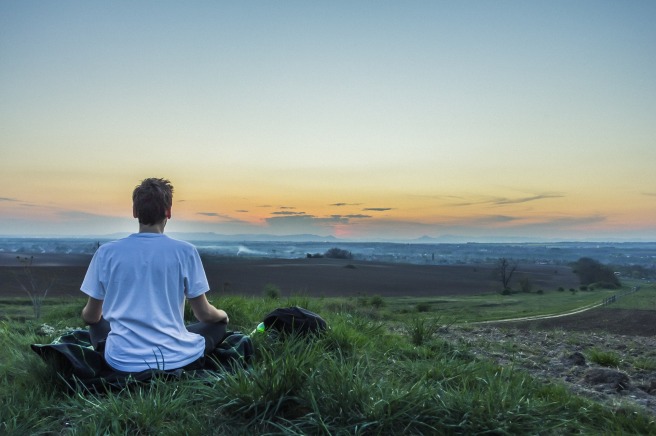
It quickly became apparent to me that these responses were a perfect example of one of the underlying issues with regards to the adoption of secular ‘spiritual’ practises in western society. Just as these responses seemed to be almost entirely lacking in empathy or compassion for the negative experiences of the people described and which were so different to their own, mindfulness is in itself a stripped down version of traditional meditation from which the equally important aspect of loving kindness is removed. Mindfulness, as understood and practiced within the Buddhist tradition, is not an ethically-neutral technique for reducing stress and improving productivity at work but a specific quality of attention that is dependent upon and influenced by other factors like the nature of our thoughts, speech and actions; including how we make a living, our efforts to avoid unwholesome and unskillful behaviours, and our efforts to develop those which encourage wise action, social harmony, and compassion towards oneself and others. It is this compassionate element of traditional buddhist practise (or rather its absence) which may not only help to explain the negative experiences described in this article but also the responses of some of advocates of the practise who commented on it.
In order to explore the nature of contemporary ‘spiritual’ practise in the West further, it is worth starting with a bit of historical context. Adam Curtis is, in my mind, a great British institution and his documentaries for the BBC – which can all be watched online for free here – present in themselves a sufficient reason to keep paying the license fee. In his marvelous four part series The Century of the Self, Curtis explores (amongst many other things) the way in which the violent repression of the movements seeking to overthrow the consumer-war machine during the 1960s led to a subsequent ‘turning inwards’ via the adoption of a range of new-age spiritual practises. The thinking behind this inward turn was that if enough people could change themselves then the world would change with them, and without any need to fight (and get beaten up by) the riot squads.
Curtis goes on to show how in ‘tuning in, turning on and dropping out’ and moving away from the protestant work ethic that still underpinned society at this period, young people in the 1960s threatened a controlled consumer society. A new generation of corporate therapists were brought in to convince the rebels that consumption could allow them to be whoever they wanted to be. In the Century of the Self therefore, Curtis makes explicit the relationship between the inward turn of new-age spirituality and consumption choices as an indicator of ones individuality, and an expression of ones freedom from the constraints of society. In doing so Curtis identifies how being able to buy anything has eroded the notion that you are perfectly free to create anything or that you are perfectly free to change the world.
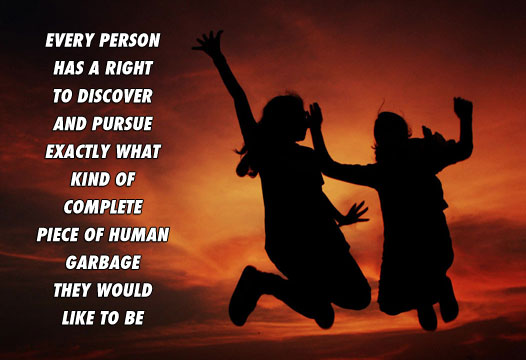
The legacy of this shift remains today. In my post ¡Viva La Compost Revolution! I touch upon cultural capitalism. We are encouraged to think that when we buy the ‘right’ products, our anti-consumerist duty to do something for others or the environment is already included within the purchase. This helps us to feel good about ourselves, and to indicate the kind of good and caring people we must be to others, whilst also helping us avoid seeking out effective ways of changing (or even thinking about) a destructive global economic system whose built in inequalities are – in general – only further consolidated with each and every purchase no matter what choice we have made. According to Annie Leonard, former Greenpeace activist and creator of the story of stuff, and the writer George Monbiot, the real solution is not perfecting your ability to buy the best option from various products, but to get products off the shelf altogether and to buy less full stop. The problem here is that it increasingly looks like buying ‘ethically’ can actually delay people from engaging with the (political) processes necessary to achieve this more significant change. Our identities have become deeply entwined with what we buy, creating an overdeveloped consumer-self. This means that when we are faced with major issues like climate change, we tend to think about what we can do as individuals and consumers rather than as citizens who can collectively change the balance of power to reflect our interests.
In ‘Selling Spirituality; The Silent Takeover of religion‘, Jeremy Carrette and Richard King expose how deeply the market ideology of the 1980s and 1990s has infiltrated secular and economic contexts. They reveal how business has repackaged religion as a means of supporting the selfish motives underpinning unregulated capitalism. The ‘spiritual’ therefore, having lost its orientation towards a wider social and ethical framework, has become an instrument of the market. Psychology has played an important role in creating a privatised and individualised conception of reality. Self facing New Age spiritual practises are then presented as therapeutic practises that offer a supposed cure for the isolation created by a materialistic, competitive and individualised social system, when in-fact they can simply work to reinforce it.
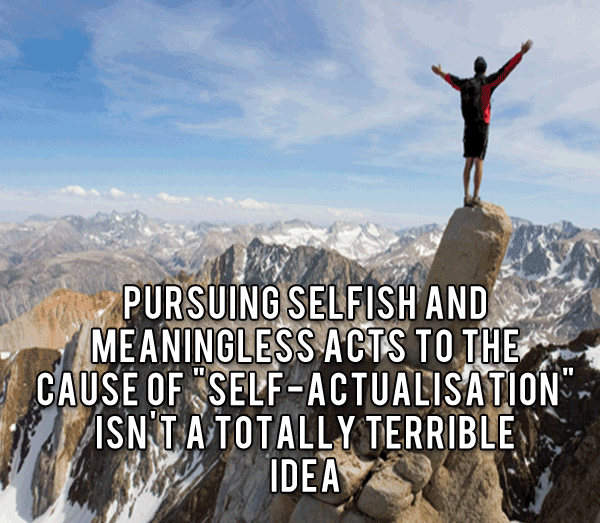
Spirituality, as it has become separated from religious contexts has adapted itself to individualism and the corporation. The primary function of spirituality therefore is no longer to provide a critical reflection of the consumerist status quo, but rather to help to maintain it. Spirituality has been yoked to the new goals of productivity, work-efficiency and the accumulation of profit, which have replaced the more traditional values of self-sacrifice, the disciplining of desire, and community.
Yoga provides a perfect example of the way in which spiritual practises now often serve to support this status quo. Traditionally rooted in Hindu and Buddhist religiosity, yoga seeks to facilitate the rejection of the autonomous self through contact with the divine. In the West however, it has been largely stripped from its spiritual contexts, often becoming an egocentric pursuit of individual spirituality or, in many instances, little more than a stress relieving and body toning activity that is actively sold by the fitness and wellbeing industry (for more about this refer to my previous post about capitalism and health), alongside a vast and increasingly expensive plethora of yoga pants, shirts, and mats. It has, in essence, become a cultural commodity to be sold to the ‘spiritual consumer.’
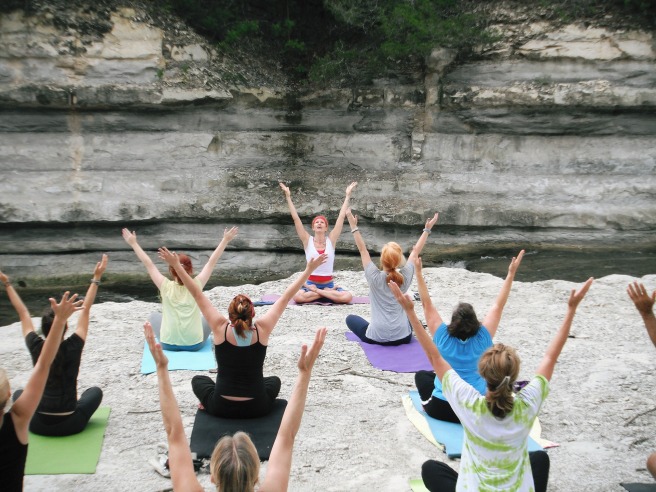
While there is nothing wrong, and actually rather a lot of positive benefit associated with the actual practise of yoga, it is the interaction between new age ‘asiatic’ spiritual thought, and highly individualistic ‘western’ capitalist society that is so problematic. Slavoy Zizek has described the Western Buddhist meditative stance (or what we might call mindfulness) as arguably the most effective way for us to fully participate in capitalist dynamics whilst retaining the appearance of our sanity (if not our sanity itself). Mindfulness has been presented as the perfect remedy to the stressful tensions of capitalism, allowing us to uncouple and retain inner peace. Zizek doesn’t disagree but points out that as such it functions as capitalisms perfect ideological supplement. Drawing on the concept of future shock, he explores the ways in which people are increasingly psychologically unable to cope with the speed of technological development and the profound social changes accompanying it.
Instead of trying (and increasingly failing) to cope with this accelerating rhythm of change, engaging with a spiritual practise can enable one to stop seeking any control whatsoever what is going on. Instead spiritual practise my allow the practitioner to let go and drift along, maintaining an inner distance to, and indifference from, these changes. This distance is based on the ‘insight’ that social and technological upheaval is fundamentally just “a non-substantial proliferation of semblances” that does not have to concern the innermost part of our ‘real’ being. Spirituality then, allows the individual to maintain a critical perspective of the frantic spectacle of contemporary capitalism, from the safety of a peaceful inner self to which they can escape. This sacred inner-self, allows the individual to to feel that they are not really a part of it, whilst also enabling them to continue to fully engage with it, happily free from the cognitive dissonance that such a contradiction would otherwise inspire.
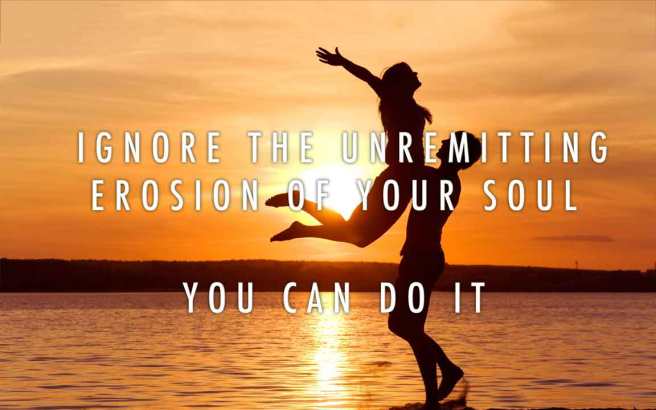
Mindfulness is often marketed as a private and internal affair, a method for achieving personal self-fulfilment and a reprieve from the trials and tribulations of cutthroat contemporary life. Spirituality becomes a central ideological tenet of capitalism, increasing peoples resilience and ability to perform productively under increasing levels of stress. While this individualistic and consumer oriented practise may allow for self-preservation and advancement, the flip side is that it may actually discourages resistance to the underlying and systemic causes of stress and distress, by keeping the individual focused on themselves, and by keeping them below the breaking point at which they say enough is enough and start taking the kind of (collective) action necessary to improve their situation.
Western spirituality in this form has also enabled a reassertion of the traditional meritocratic argument that, irrespective of preexisting social systems with their built in structures of oppression and discrimination, anybody can become rich and successful if they just work hard enough. This once powerful narrative, which we could just as well call ‘The American Dream’ lost a little of its shine following the global financial crisis and subsequent global recession. The concept of spiritual meritocracy however, has allowed for a successful rebranding of the concept, the new line being that professional and financial success are now dependent on our spiritual merit, and therefore that if we pump out enough positive energy, and are happy and grateful enough, then we will be rewarded.
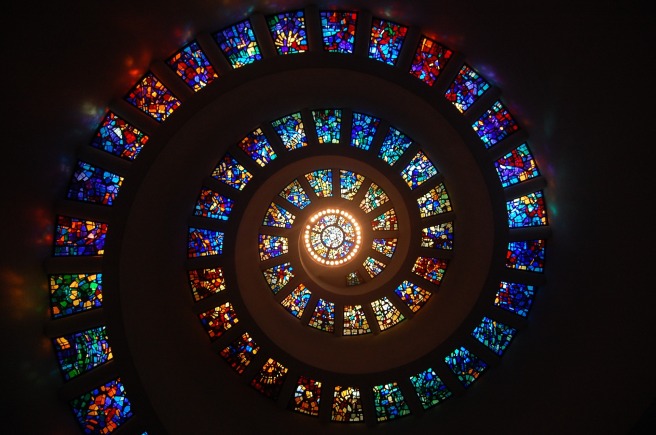
The growing power of the narrative of spiritual meritocracy is underlined by the following example. Microsoft CEO Satya Nadella recently told a young businesswoman who was concerned that her male peers were passing her up for promotions, that she would get ahead if only she put her trust in good karma. Thus, rather than encouraging the women to question the very real and systemic sexism in the industry, Nadella suggested success would follow as a result of doing the very opposite and passively waiting to be noticed as a good egg. Once again spirituality is being used to justify and reinforce an existing social hierarchy rather than to inspire positive social change. While you might point to the fact that west coast new age spirituality has been rapidly embraced by silicon valley and the IT industry in general, I would argue that the subconscious embracing of spiritual meritocracy is far more widespread. A memorable response to the mindfulness article that I shared, which relished (I love the bit where…) the fact that a woman experienced psychological breakdown when historical trauma reemerged during meditation, provides a clear example of this kind of thinking much closer to home. The author of the comment, in claiming that it served her right for thinking she had already dealt with her trauma (despite not having meditated previously), provides a perfect example of a narrative whereby the suffering of others becomes the karmic product of their own poor decisions.
Our society emphasises an interpretation of Eastern spirituality that does not threaten its own internal materialist and individualist logics. The Buddha taught that money was a blessing, and that one effect of an ethical way of life would be material prosperity. But surely he would interpret the glaring wealth inequalities that exist today as more than the result of karmic patterns, especially given the central roles played by slavery, colonialism patriarchy and the general exploitation of humanity and nature in their emergence. Even when Western Spirituality appears to embrace asceticism, as – for example – with the techno-asceticism advanced by Rob Rhinehart, you only have to scratch the surface to realise that the seemingly anti-consumption ‘less is more’ ideology being adopted is little more than a form of ‘consumption laundering.’ The feeling of minimalism is achieved by offloading consumption onto others, in this case the workers of the new gig economy, who carry all of the risk for their employers, are discouraged from organising (to protect and fight for their rights) and whom enable capitalists to reap huge profits with low costs.

It is at this point that I want to bring back Bristol and Brexit. Although 62% of the electorate of Bristol voted in favour of Remain, that still means that almost 40% voted to leave. When people talk about Bristol being a united community and joke about how we should declare independence and stay in the EU, they ignore the fact that essentially 2 in every 5 voters in the city have extremely different views to them. There is no available breakdown of voting across the city as it is a single council area, but based on the figures from the Greater Manchester region, other larger urban areas and the overall national results, it seems likely that in those areas of Bristol with lower levels of immigration and higher levels of deprivation, the majority of people will have voted to leave.
Writing this now, I’m reminded of when I was evaluating a community project in Knowle West, a deprived, predominantly white area in South Bristol. A member of staff at the organisation had contacted their network of contacts in the local community regarding a rash of graffiti Swastikas that had appeared on walls in the area, asking what they could do about it. She was stunned by the almost total lack of outrage, and a general lack of response to her communication. There are communities within Bristol, as in the rest of the country, that have been deprived for a very long time. Austerity has made people’s lives worse, it has even claimed peoples lives. It is the failure to really acknowledge these communities as part of ‘our’ Bristol, a failure that still continues post referendum that is at the heart of why we find ourselves in this situation in the first place.
Like many people I know, such is the divide between these two worlds that I hardly know anybody who voted for Brexit. When I have encountered people, I did my best to try and explain my views, although it was quickly clear to me that their opinions were unlikely to change. More importantly, I also did my best to try and understand where there motivations for backing Brexit were coming from, irrespective of how unpleasant they might have appeared to be. Unfortunately, I don’t think this kind of dialogue is happening nearly enough. It is easy to laugh or get angry at the stupidity, small mindedness or bigotry of the ‘other.’ It is even easier to do so when these people are not part of our own networks of friends and acquaintances, when they remain nameless and faceless strangers as opposed to real, individual members of our own local and national community, people with the same fundamental hopes, dreams and fears as the rest of us.
It should be no surprise that support for Brexit and the anti-immigration stance it’s advocates took, were highest in parts of the country where immigration is lowest. Just like the monster in the horror film, which is always more scary up until the point that you actually see it, it is the idea of immigration and the myths and fallacies associated with it that provide the most effective receptacle for peoples broader fear, anger and anxiety. The demonisation of ‘stupid small minded leave voters’ is also driven by the same process. The idea of the other always provides a much safer space for us to unload our unwanted and unsavoury negative feelings than the more complicated reality of people who are fundamentally just like us, but whose circumstances are vastly different.
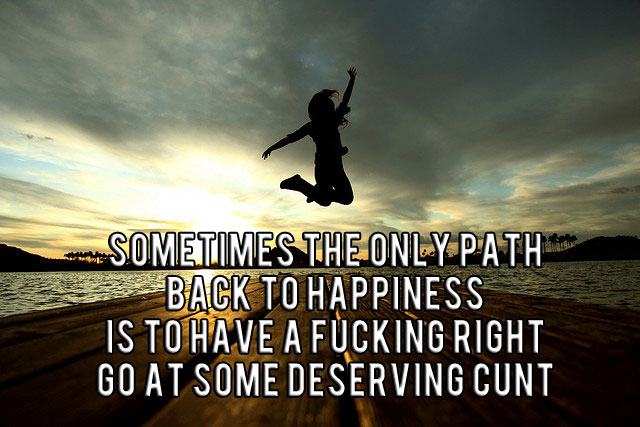
Here are a few post referendum posts from people within my own social network that jumped out at me from my newsfeed. They were far from the only ones I could have chosen, with many others sharing a similar ‘vibe.’ Generally speaking, they all acknowledge (explicitly or not), that the outcome of the referendum has been hugely divisive and that clearly slagging leave voters off is unlikely to improve the situation. Instead they all have a positive message, calling for more love. Now I can be a pretty miserable bastard at times but even I can admit that this sounds fairly nice. It is your typical progressive liberal call for everybody to be nicer to everybody else… very Bristol:
“LOVE! Refrain from jumping on the hate bandwagon. Don’t be angry. The EU will fall apart now. We’ll all be on an equal footing. Brussels no longer has all that power. We the people will have more influence on how things are run here. The US will fall apart next and split into smaller states. THIS IS A DIVINE PLAN!! Centralised power is too dangerous. Mother won’t allow it. We must NEVER allow a centralised power aggregate.In the meantime LOVE ONLY. This divisive process is causing much hate. We are birthing into a new era. Surely we should celebrate and support our brothers and sisters in the Europe to do the same.”
“Now is not the time to begin pointing fingers or pushing out even more hate than this awful campaign has already created. This is where we are now, and now is the most important time to be conscious, mindful and active human beings that understand, challenge and really fight for the real shifts that need to now take place to get us out this mess. Dont waste your energy on anger, push the love out there peeps x”
“Today, I find myself quickly moving quickly through stages of denial – anger – acceptance – happiness – gratitude – to finally being at the pub with friends, celebrating the beat of the global heart that politics and capitalism and other such bollocks can never falter. Let’s move forward with absolute love and faith as per usual eh!?”
I know many people – myself included – sometimes say things on social media without really thinking that much about them. I also appreciate that Facebook isn’t necessarily the best place for careful analysis and discussion (where is these days?) However the first post is such an extreme example of the perverse bullshit that taints so much of contemporary Western ‘spirituality’ that I had to include it, albeit partly just because things are rather serious and everybody needs a chuckle from time to time. Obviously the idea that the vote for Brexit is all part of some cosmic plan is as absurdly stupid as somebody saying it was gods will, and actually seeks to discourage people from trying to do anything about it. Clearly the author is more than a bit confused anyway, because he also states that Brexit will give people more influence (but presumably only if this influence fits with the ‘divine plan’, right?)
I have less of an immediate issue with the second post which generally seems pretty nice and quite sensible. Unfortunately it puts rather a lot of emphasis on the idea that if we can only push more love out everything will be ok. I like the language; the talk of action, of fighting for change, of understanding and being conscious and mindful. These are all very positive words, but the post makes no real effort to identify what the underlying problems are (beyond too much hate), or how to solve them (beyond ‘pushing out’ more love).
It is interesting that all three posts seem to have a bit of an issues with people being angry. I agree that anger directed at ‘remainers’ is probably just as unhelpful (if perhaps more understandable) than the anger some remainers are directing at immigrants, members of the BME community and anybody else not considered British or patriotic enough. However, I do I wonder if we are in danger of pathologising anger? As my wonderful Colombian friend taught me, anger and associated feelings of injustice can also be the most incredibly powerful driver of positive action when it is correctly channeled. Instead, collectively these posts may actually be in danger of reducing the issues around Brexit down to the the need for individuals to move from bad (negative) to good (positive) emotional states whilst being more loving. Behind this rather hopeful message, there is little attempt to actually understand why these events have happened or what could possibly be done to prevent the situation escalating further.
The third post takes perhaps this the furthest. In less than a day the author tell us that he has succeeded in moving through the spectrum of emotional states, from negative to positive, as if this were something to be admired. He is happy again and ready to move forwards with life. Going to the pub with his mates and ‘celebrating the beat of the global heart’ (I know, don’t even bother asking), provides the means to disassociate himself from nasty things like politics and capitalism. Hey presto! By focusing on feeling grateful for what you have within your own community, feelings of anger are removed and – as if by magic – any motivation to think about what others may be going through in the face of a growing tide of racism and hate, to think about what others may lose in the near future, or to try and understand the causes and possible solutions to the problem, disappear. Now I am not suggesting that there are any easy or obvious answers to the questions why is this happening and what can we do about it, but surely we should at the very least be asking these questions and not just withdrawing back into the relative comfort and security of our own lives?
So, three post-Brexit posts from progressive, liberal, inhabitants of Bristol; all with a sprinkling (or avalanche) of positive new-age ‘spirituality’, all undoubtedly well meaning, but all unable to really move beyond suggesting that we should be less angry, more positive and more loving. I’m aware of the fact that a positive post has a much better chance of becoming ‘like bait’ on Facebook than a depressing one, and that it is also entirely true that the depressive effect of mass hopelessness does not make it a very effective driver of progressive change. But unwarranted optimism and the disappointment it invariably provokes when things don’t improve, can be just as demobilising as pessimism. Pessimism is easily written off as cynicism but the reality is that analysis of some situations should provoke pessimism as an appropriate and logical response. I think it is far better to try and actually understand a situation, even if it involves feeling bad about the realities of it, than to myopically avoid the analysis and skip ahead to trying to make yourself feel better about things by reminding yourself how much you have to be grateful for.
Yes love is important, of course its important, and its certainly more useful than hatred (duh). It amazes me that people seem to think that there might not actually be a consensus that love is good, or that more love is even better than less. But while calling for more of it within our own cosy, caring little echo chambers might help us all to feel a little fuzzier, it is not really the level of analysis we need if we are actually going to change the big bad world outside of them. And actually, a thousand horrible acts are committed in the name of love, it can be just as destructive a force as any of seemingly unacceptable emotions like anger. After all it is when we feel that the things and people that we love are most under threat that we often become deeply intolerant towards whatever (or whoever) appears to be threatening them. Might many of the people who voted to leave the EU and who appear to hold such unpleasant views about immigrants, who appear to be expressing so much hatred towards others, not also – admittedly rather perversely – be acting out of love? Acting out of the desire to protect and defend their loved ones by what they – misguidedly – see as an overwhelming threat to their wellbeing and quality of life? No matter how much we encourage each other to love more, what happens if that love never reaches beyond the boundaries of our own comfortable communities to the people we disagree with, to the people whose views sometimes seem so abhorrent to us?
If we don’t know a single person within our own social circles who voted in favour of brexit, or who thinks immigration is a bad thing, (or actually, even if we do), how exactly is us calling for more love going to make even a single jot of difference to their lives and inspire them to change their opinions? The reason why we are so shocked when half of the country suddenly votes in favour of a deeply unprogressive and intolerant agenda is because we often consciously chose to live in an almost entirely separate universe to many of these people. I think that this is a big problem.
Despite much good work, the divisions between communities in Bristol remain real and very visible. They are not just socio-economic but racial too. The ward of Easton prides itself on its inclusivity and tolerance, and despite (and maybe also partly because of) a general level of dirt and dilapidation immortalised in the Facebook group get the Easton look, I loved living there. It is a diverse area with a BME (Black Minority Ethic) community that represents nearly 40% of the population. When I lived there however, I was shocked to notice that very few of the pubs had a mix of punters that was in any way representative of the ethnic makeup, with virtually all being almost exclusively white or black. The same lack of ethnic diversity was also true with regards to the inhabitants of many streets. To me something instinctively feels wrong about the fact that even within our most diverse communities a degree of segregation, whether voluntary or not, seems to exist. Here too, the divisions may be getting sharper and this is certainly not a voluntarily process. Easton is now experiencing a process of gentrification, with house prices soaring and the arrival of a deli, an artisanal bakery and an influx of more affluent (and predominantly white) residents. I wonder how long it will be before the less well off are priced out of the area all together.
Within Bristol more broadly, a blend of new-age spirituality and positive psychology seems to abound within the more cosy, liberal areas. This might seem pretty harmless. But sometimes it reinforces a narrative of spiritual meritocracy, even if the onus largely remains – thankfully at least for now – on creating ‘good karma’ for yourself through the positivity and gratitude you feel for how wonderful everyone and everything is, rather than on the equation of the misfortune of others with their own bad karma. Perhaps the only reason why we do not yet seem to be applying this same logic as consistently to the less fortunate and more challenging amongst us, is that we would actually have to really acknowledge their existence within our city first, and that might feel a little too uncomfortable, like a ‘blessing’ we are not quite ready to count yet. As I discussed in a previous post, when we do acknowledge these people, sometimes it is simply to label them as ‘toxic’, a practise that in itself is often associated with being ‘spiritual’, in that the disassociation of ourselves from difficult people, whose behaviour may actually be a manifestation of the struggles they are experiencing, is apparently not only beneficial for us but is also apparently doing them a favour too.
This kind of thinking can encourage a kind of apolitical laziness, a willingness to fall back on easy answers, like the need for love, but an unwillingness to extent it beyond those who we identify as being ‘good’ people like us, to those who we may either consider invisible or in some way ‘toxic.’ What these acts often actually represent is an effort to avoid really understanding the causal forces, power structures and inequalities at play behind events such as Brexit. This may be because when we really seek to do so, the sharp divisions that enable ‘us‘ to comfortably moralise and be outraged about ‘them‘ suddenly seem less solid, with our own moral superiority being dissolved by what often turns out to be the reality of our more fortunate, privileged circumstances.
An unwillingness to really seek to understand such events – and our own potential complicity in them – may also be explained by the fact that the negative consequences of these events often fall most heavily on those less fortunate people who exist hazily somewhere outside of the boundaries of our own enlightened communities. This is a reality that we may seek to remain unconscious of, as a full awareness of this fact not only undermines our ability to get totally outraged at the (relatively lesser) injustices that we may have to bare, but may also make our own karma boosting attempts to count our blessings and stay positive, look a little smug and uncaring.
The maintenance of, and withdrawal into ‘safe spaces’ (be they internal, electronic or geographical) can provide a safe haven, a chance to reenergise and gain courage for the battles ahead. However, if we do not leave these spaces again we can miss out on a fuller understanding of those events and people that exist outside of these boundaries. The trade off for this lack of understanding is that we can also evade or minimise the associated emotions that often accompany these efforts, whether they are ‘negative’ (a sense of responsibility / guilt / helplessness / anger / despair) or ‘positive’ (feelings of compassion), allowing us to focus instead on the maintenance of our own individual (or tribal) happiness and peace of mind.
In a previous post I talked about the worrying tendency for the left to seek to ban, block and censor the things and people that we fear or despise, that scare us and makes us feel deeply uncomfortable. This is the flip side to our seeking out of safe spaces and another means of creating distance between ourselves and things we don’t like. While the need to these spaces in a scary and sometimes threatening world is both understandable and necessary, we also need to be willing and able to step beyond these spaces and engage with the dangerous and troubling realities of life, including those people whose views are so very different to our own. After all, how are we going to change the things we have an issue with if we constantly succeed – whether intentionally or not – in maintaining a clear space between us and them that is too wide to be bridged,
While the posts calling for less hate and more love are admirable (in that they are actively seeking to challenge the easy option of simply demonising ‘the other’), that is the limit of their engagement with this ‘other.’ Here is a question: Is there not a very real danger that if one of the overriding instincts during the course of troubling events is to focus on removing your anger and regaining your own emotional harmony, could the ability to understand, empathise and feel genuine compassion for others, could the burning desire to try and change that situation or protect their interests also be shed along with these ‘negative’ feelings’? When we suddenly feel that we are wobbling in the face of uncertainty and insecurity and feeling anger and shock, rather than simply rushing to rebalance ourselves via some kind of inward looking ‘spiritual’ practise or the reaffirmation of the goodness of ourselves and our tribe, what if we sought to use these experiences to help us to relate to those for whom this is a more permanent state of affairs? In the case of Brexit, are not the feelings of impotency and uncertainty that we may be feeling the same feelings that a great number of leave voters have been feeling for many years? If we set out to channel feelings of anger and injustice into actual positive action, would the need to urge ourselves and others not to be angry but to revert back to positivity as quickly as possible still be required? Is the need to regain emotional control perhaps symptomatic of our inability or unwillingness to do anything more productive with these emotions, or is it perhaps a fear that if we cannot revert back to a positive and optimistic type, we fear our progressive and spiritual credentials will lose a little of their lustre?
In my explorations of the ‘spiritual’ I how described how the ‘inward turn’ of new age spirituality came about as a result of the violent repression of the progressive movements of the 1960s, only to become horribly entangled with a form of identity signalling consumption so powerful that individuals seek to address global challenges as consumers first and citizens second. I have argued that spiritual practises like yoga and meditation, stripped of much of their original context and geared toward individual achievement, often provide an ideological supplement to capitalism; putting the onus on the individual to cope with the psychological stresses induced by accelerating technological and social change and potentially discouraging them from acting collectively to regain some control over these processes. They have become means of capital accumulation and examples of cultural appropriation,’spiritual commodities’ to be sold along with their ever growing bevy of associated products.

I have talked about the way in which new age spiritualism has blended with positive psychology to give the faded narrative of meritocracy a shiny new gleam, one that continues to blind us from the underlying structural causes of the issues we face, encouraging us to think that our fortunes, and those of other people can be improved through the accumulating of good Karma manifested in the form of positivity and gratitude. Working hard at this task can supersede the larger challenges of tackling the broader systemic oppressions and inequalities that ensure that the route from suffering to success is not as available to other people as it may be to us, irrespective of their and our relative karmic accumulations.
This form of spirituality displays a preoccupation with the continual shifting of the inner self towards happiness and gratitude. What if this preoccupation comes at the expense of an engagement with society and politics, with getting to grips with the realities of capitalism and any ‘other such bollocks’, or with the difficult, complicated and unpleasant feelings that may accompany such engagement? If this strategy is simply encouraging us to try and “rise above the raw and messy side of our humanness before we have fully faced and made peace with it”, then actually we can describe it as spiritual bypassing. As such, there is nothing transformative about it at all, and it can often serve only to reinforce the individualistic and materialistic logics of the status quo, the very same logics that actually underpin the growing inequality and division within society.
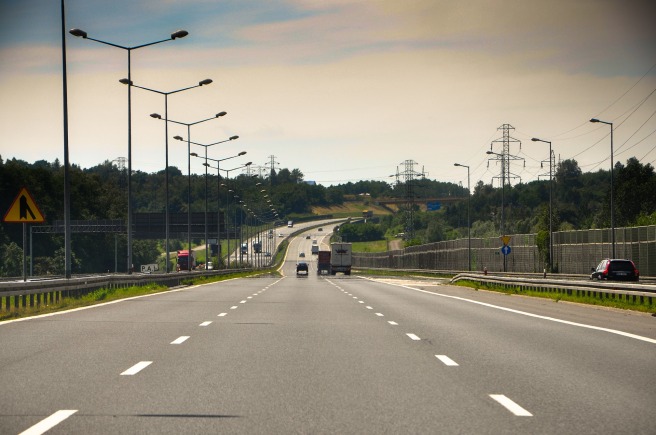
This post might give the impression, that by and large I think western spirituality is a morally bankrupt and failed corruption of traditional practises. It is definitely fair to say that when people talk about how spiritual they are; about how their ‘tribe’, unlike all the other ‘sheep’, is not afraid of reality; when they seek to differentiate between ‘real’ spiritual people (who say fuck apparently) and ‘fake’ spiritual people; or even when they seem to take even the very idea of spiritual bypass as a personal slight, I increasingly find myself grinding my teeth and wanting to violently and repeatedly smash my head against a wall with frustration. As I may have mentioned earlier I think there is a great deal of egotistical self-serving bullshit wrapped up within the guises of spirituality.
I recently saw a quote which ran along the lines of ‘the motivation for everything we say and do can be summed up very succinctly; validate my existence’. While this is almost certainly an exaggeration, I do not think I am exaggerating in suggesting that within the bubble of liberal, progressive and spiritually inclined Bristol, the primary motivation for some people in being closely associated with these values (by, for example, proclaiming ones ethical consumption, spiritual practise or general positivity and gratitude through social media), is for the purpose of creating and reaffirming their own identify, individual virtue and social status. That is not to say that many people do not care deeply about the environment and social justice issues, or much more importantly that they are not actively working to try and make the world a better place, only to say that these noble concerns can become increasingly wrapped up with the representation of the self.
It does seem to me that these concepts may sometimes play a more important role in allowing the demonstration of belonging to the correct tribe, or of feeling good about oneself, than as a core set of principles from which to actively and collectively fight for change. Drawing on my own history, it is all too easy in Bristol to pay lip-service to these ideals without actually ever really going out of your way to truly honour them. The number of self proclaimed ‘hippies’ who buy everything from scoopaway so as to avoid using plastic bags and who carefully recycle paper so as to protect the trees… and then buy a gramme of cocaine or MDMA at the weekend, despite the huge social and environmental impact caused by these substances, provides a perfect case in point.
Many people make at least some attempts to reduce the damaging social and environmental impact of their daily lives, picking and choosing where it suits their patterns of consumption and general lifestyle – with blindspots (flying anybody?) – for where it does not, whilst also undertaking some form of ‘spiritual’ self-development. But much of this activity can become largely self serving. While these activities might make you feel good about yourself (and there is nothing wrong with that), really trying to make a meaningful and positive impact on the world outside of your own personal bubble is often a thankless and seemingly impossible activity that involves genuine commitment and sacrifice, and can lead to complete mental and physical burnout. It involves collective rather than just individual action, engagement in the frustrating world of politics, and dealing with people much less pleasant than the lovely like minded folk that you probably chose to have around you. It doesn’t necessarily make you feel good all of the time either. After all, it is not easy navigating the gamut of negative emotions, contradictions and moral mazes that arise from engaging with the overwhelming realities of living in an in inherently unfair, oppressive, globalised system.
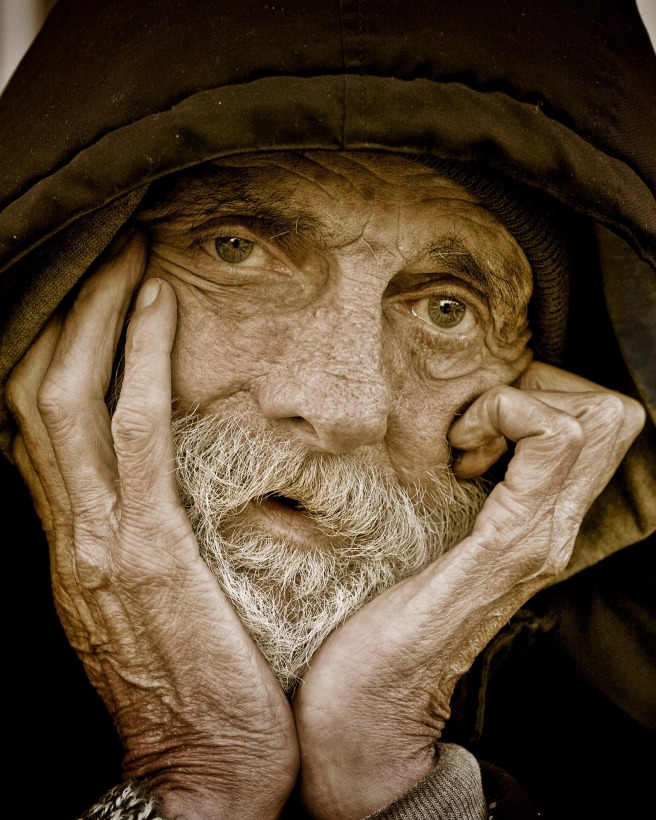
I would quite happily put the term ‘spirituality’ down (humanely of course), so saturated with bullshit has it become. Having said all of that, and at the risk of now sounding ever more stupid, I’m not against ‘spirituality’ per say, just as I am not against people trying to make positive changes in their lives. I think, however, that it is important to to ask the question ‘who benefits from particular constructions of spirituality?’, just as I think it is important to ask – for example – whether ‘ethical’ consumption is the best way of actually achieving the change we wish to see, particularly when consumerism and the identification of self with what one buys, is clearly part of the problem.
When we ask the question ‘who benefits’, we see what happens when spirituality is decoupled from the institutions and social conventions of religion or a broader ethics. We see what happens when we make it instead about personal development and link it to an identify that is defined by the consumption of lifestyle and wellbeing products and the egotistical projection of self via social media. The answer is that it becomes little more than a sticking plaster for neoliberalism, an ideological accompaniment that encourages individuals to become compliant, self-absorbed and reliable consumers, not the active, compassionate and outwardly engaged citizens that we desperately need.
This corporate-capitalist construction of spirituality currently appears to be the dominant model, to the extent that it is being re-exported back from the west to countries such as India, as means of pursuing secular life and career goals in deeply disciplining institutions without becoming too stressed / depressed. Despite the dominance of this construction however, what is to say that if we could unshackle spirituality from its subjugation to the cults of hyper-individualism and accumulation, that it could not be anti-capitalist or indeed even revolutionary?
Buddhism is sometimes labelled as a religion and sometimes as a philosophy. One thing that is clear is that much western secular spiritual thinking and practise draws, or at least claims to draw heavily from it. My perceptions of Buddhism shifted dramatically after I attended a talk being given by the venerable Robina, an Australian Buddhist Nun with a demeanour somewhat reminiscent of a pit-bull terrier. Up until this point my – admittedly pretty limited – understanding of Buddhism could be summarised as “the pacifism and the tolerance and the lack of dogma sounds pretty good, but surely (as per Zizek’s critique of Western Buddhism) the acceptance part just encourages passivity when actually we need to fight for change?”

Nobody would ever dream of describing the venerable Robina as passive. She is an activist who has worked tirelessly to support the vulnerable and disenfranchised, including those in prison. She argued persuasively that meditation and buddhist practise can allow us to become more skilful in life, and that these skills can be set to the task of instigating progressive change. As a result of the talk, I started attending meditation sessions at a local Buddhist centre. Within a few sessions I had changed my mind significantly. Mindfulness does not have to simply serve as a tool for helping us to cope better with the terrible state of things and to achieve a passive acceptance of them. When it is married with compassion for oneself AND others via metta bhavanna or the cultivation of ‘loving kindness’, it can become a powerful instrument for change, not only giving us the headspace to create more skilful responses to the challenges we face, but more importantly by morally compelling us – through the cultivation of compassion and empathy – to try and reduce not only our own suffering but that of other people too.
I think that every post I have written for this blog, has in one way or another been a cry for more compassion. More than anything else, compassion seems to be the vital ingredient in most short supply in a society in which the pursuit of material wealth and/or individual happiness remain the primary motivations for many people. The results of the EU referendum has shown us what happens when compassion runs in short supply, when we fail to fight on behalf of people who have suffered a long process of economic and political disenfranchisement that, oddly enough, began at about the same time as the ‘inward’ spiritual turn. It is this turning away from society and the suffering of others that has left us where we are today. For too long, much new-age spirituality has reflected Margaret Thatchers mantra “There is no such thing as society, there are individual men and women and families [or – in todays lingo – ‘tribes’].”
Inward looking spiritual practise, which focuses on the development of the self, the creation of a haven of inner peace, or – at best – a state of tribal contentment amongst the fellow ‘enlightened’, is not fit for purpose. It simply allows people to disassociate themselves from the forces that are wreaking social and environmental destruction around the globe whilst allowing them to continue to engage fully with them guilt free. As such, it represents an attempt to be like China Mieville’s citizens of Beszel and Ul Qoma; a manifestation of a desire to ‘unsee’ and to consciously abdicate oneself from the moral responsibility and associated negative emotions that often arise when one realises that the world is actually burning.

The only description of ‘spirituality’ that I can think of that fits this way of being is this:
- Spirituality noun spir·i·tu·al·i·ty \ˌspir-i-chə-ˈwa-lə-tē\
- The undertaking of almost entirely self serving actions to improve ones psychological wellbeing, with little regard for engaging with the broader world; both as the probable source of this suffering, and as the home of many other creatures that are also probably suffering, possibly far more than you.
This description is unlikely to appear in a dictionary any time soon, so its probably fair to say that this is not what spiritually should be. You might also think that as a description it sounds like it fits rather well with counselling – which I am a firm advocate of – but actually, in helping individuals to work through psychological distress, counselling can help people to make connections between their own suffering and its broader causes, and as such can help to get people out of their own individual bubbles. Plus, the ‘counselled’ – or the ‘therapeutically inclined’ (as one might call them if we used the framing of spirituality), don’t tend to make grand claims about their enlightenment and moral superiority, nor do they generally seek to create a slightly smug identity around the fact that they decided to go and see a counsellor for a while. I think we can let them off.
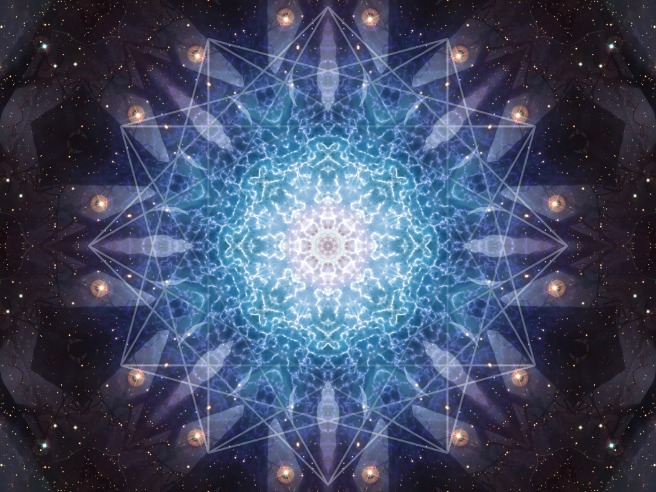
If we want to have the understanding and the motivation necessary to really set about trying to address the bigger issues in society then the inward focus of self development needs to be partnered with the cultivation of compassion. We need to have an outward looking perspective that contains a willingness to feel the suffering of others; to accept that while we may be able to feel ok and grateful through spiritual practise, systemic oppression is real and needs to be fought; and finally, we need to have the courage to be with the accompanying (often negative) emotions that can spur us to (collectively) act. In my mind, any practise in which the pursuit of individual happiness is an end in itself, and not a starting point / a compelling motivation for seeking to benefit the collective good, is spiritually bankrupt.
Self development can simply reinforce the status quo by making it a little easier for us to cope with the pressures of an accelerating and opressive system. It can also provide the precious space that is necessary to effectively understand and critique the way things are, and to develop the skills necessary both for its effective resistance, and for the creation of alternatives. Self development through ‘spiritual’ practise can also provide us with the means to skilfully engage in these battles without burning out or giving up as a result of the trials and tribulations and the suffering, grieving and profound heartache that often accompanies them. Whether it be as part of a ‘spiritual’ practise or not, we need to cultivate our compassion and empathy along with our understanding. Not simply for ourselves or the nice people we chose to have in our own personal networks, but for people in our broader local and national communities, (yes even ones that vote for Brexit and are shouting at immigrants to go home), and for the whole global human community too. It is only then that we can really hope to reach out from our own mental and physical safe spaces, reach out across the increasingly apparent divides that run through our cities, our countries and the globe, and learn, understand and fight together for the kind of transformative systemic change that can not just reduce the suffering of one person, but millions. This is what our city and our country so desperately needs.
Feeling inspired by the memes dotted throughout this blog? Check out negativelyinspired for more.
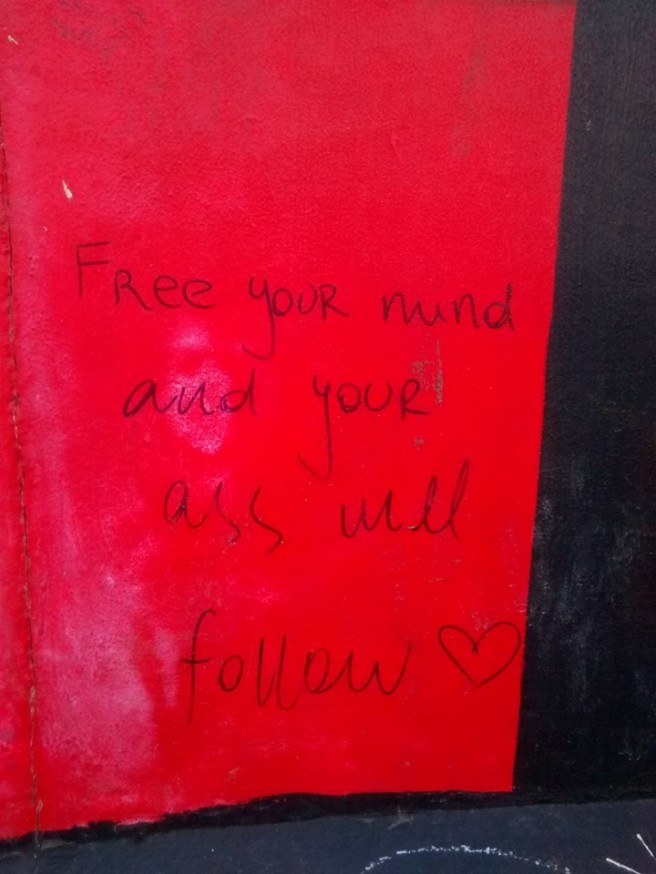

One thought on “Divided Britain; Brexit, Bristol and Bankrupt Spirituality”